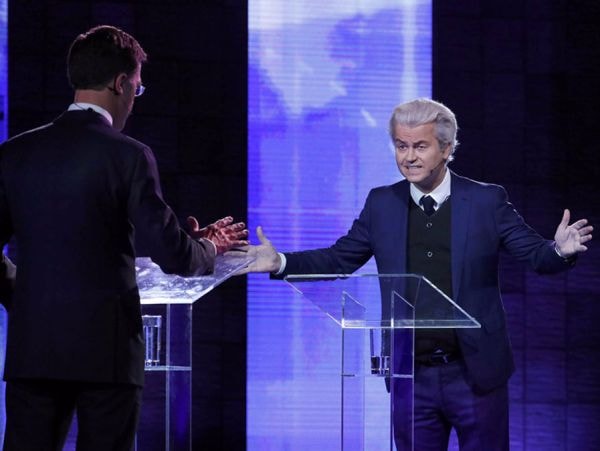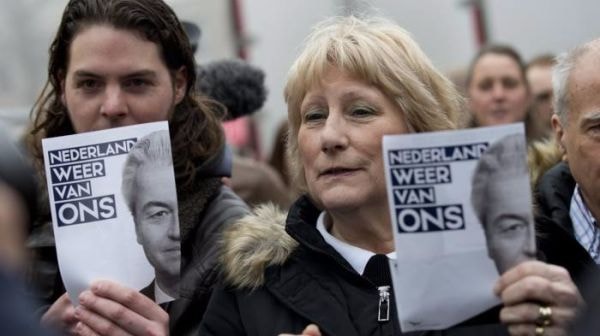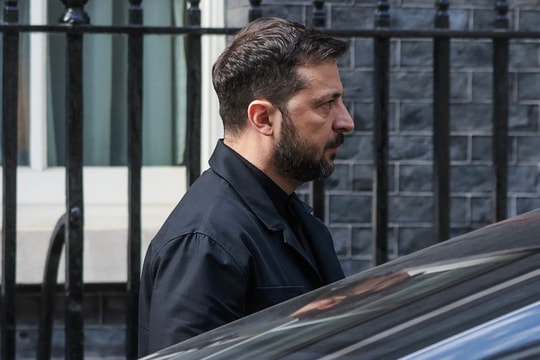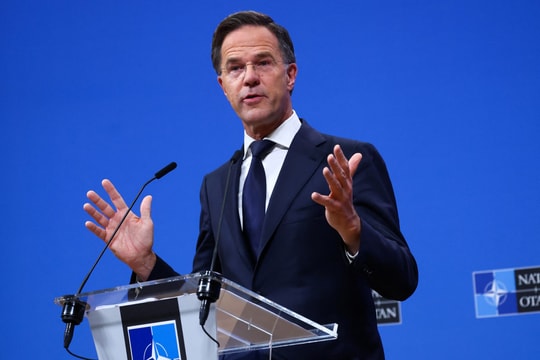Geert Wilders, the undercurrent in the Netherlands
(Baonghean) - As the main character in the important election that took place on March 15 in the Netherlands, Mr. Geert Wilders is currently one of the most prominent and controversial politicians in the Netherlands and Europe. Although he did not win the recent parliamentary election, it can be said that politician Geert Wilders is still the "undercurrent" that Dutch Prime Minister Mark Rutte must face, to prevent the populism that is increasingly rising in this country.
Controversial character
Born on September 6, 1963 in Venlo, a province in the southeastern Netherlands bordering Germany, Geert Wilders became interested in politics in the early 1980s. In 1981, he moved to Israel after graduating from high school.
In just two years, he traveled throughout the Middle East and began to form the anti-Islamic views that would later define his political career. However, when he returned to the Netherlands in 1983, he started a job in the health insurance industry.
It was not until 1989 that he joined the VVD party as an assistant to MPs, and his anti-Muslim bias had matured, thanks to his experiences in the Middle East, witnessing settlements and tensions with the Palestinians.
 |
| Mr. Geert Wilders in a televised debate with Prime Minister Mark Rutte on March 14. Photo: Reuters |
Geert Wilders first entered government office in 1997, when he was elected to the Utrecht city council as a member of the Party for Freedom and Democracy (VVD). Just a year later, he was elected to the National Assembly, where he soon became known for his extreme views on Islam.
But in 2004, he left the Party for Freedom and Democracy, after the party announced its support for Türkiye's accession to the European Union (EU). Two years later, he founded the Party for Freedom, which won nine seats in the 2006 general election. His party later grew to 24 seats, becoming the third largest party in the Netherlands.
However, the controversial politician got into trouble in 2008, after he produced a short film called Fitna, which featured information about the Koran mixed with clips of Islamic terrorist attacks.
As a result, as a result of the film, he was banned from the UK and charged with inciting hatred against Muslims by a Dutch court. However, after a lengthy trial, the ban was overturned. But in December 2016, Wilders was charged with inciting discrimination after asking a crowd of supporters if they wanted to see “fewer Moroccans in the Netherlands”.
Not only has Wilders faced much criticism in his country and in Europe, he was also blacklisted by Al-Qaeda in 2010. He has also received many threats from radical Islamists. Despite this, as the founder and leader of the Party for Freedom (PVV), Wilders has been rallying against “Islamism” in the Netherlands.
Will Nexit become a reality?
With a pledge to close the Dutch border and mosques, and take the Netherlands out of the European Union (EU) - also known as Nexit - if he comes to power, Mr. Geert Wilders has won significant support from voters in many pre-election polls.
These are voters who are disappointed with the socio-economic situation of the Netherlands and are skeptical about European integration. This is evident from the fact that just before the important election day, up to 60% of the 12.9 million voters were still undecided about which party to vote for among the 28 participating parties.
 |
| Supporters of Geert Wilders in Spijkenisse, near Rotterdam last month. Photo: AP |
In fact, in 2016, the Netherlands achieved the highest growth rate in the Eurozone. However, Dutch voters from the middle and lower classes still believe that they have had to endure too many “austerity” measures in the past. In addition, although the Dutch people may support the current Government because of its achievements in governing and managing the country, they are still not satisfied with the current quality of life.
Grasping such ideas, combined with the rising wave of populist support in Europe, Mr. Geert Wilders and his Party for Freedom hope to do something historic. But it seems that the power of controversial politician Geert Wilders is not strong enough to make the majority of Dutch voters "turn their backs" on the ruling party of Prime Minister Mark Rutte.
The results of the recent election showed that Prime Minister Mark Rutte's Party for Freedom and Democracy won, although the number of seats was reduced compared to the 2012 election. According to analysts, the Dutch people do not actually want to give power to the right-wing forces, but only want to create a new breeze for political life in the Netherlands.
For his part, in a statement after the election, Mr. Geert Wilders said that his party is ready to cooperate with the new Dutch Government if requested. However, this certainly does not mean that populist ideology has completely died out in the Netherlands. In fact, the UK referendum on Brexit has shown that all scenarios are possible and all risks are present in the Netherlands. Therefore, the "Geert Wilders populist undercurrent" will still be a challenge that the Dutch Government cannot "ignore".
Phuong Hoa
| RELATED NEWS |
|---|







.jpg)
